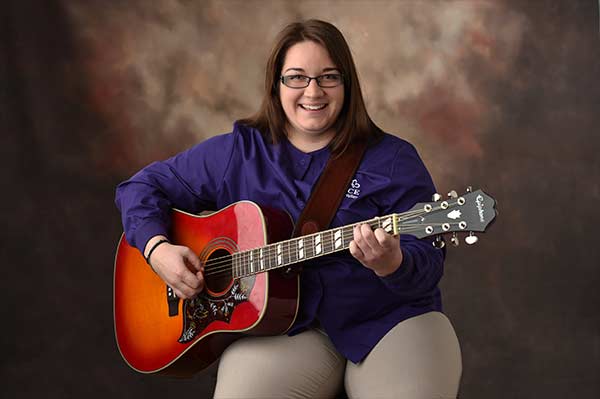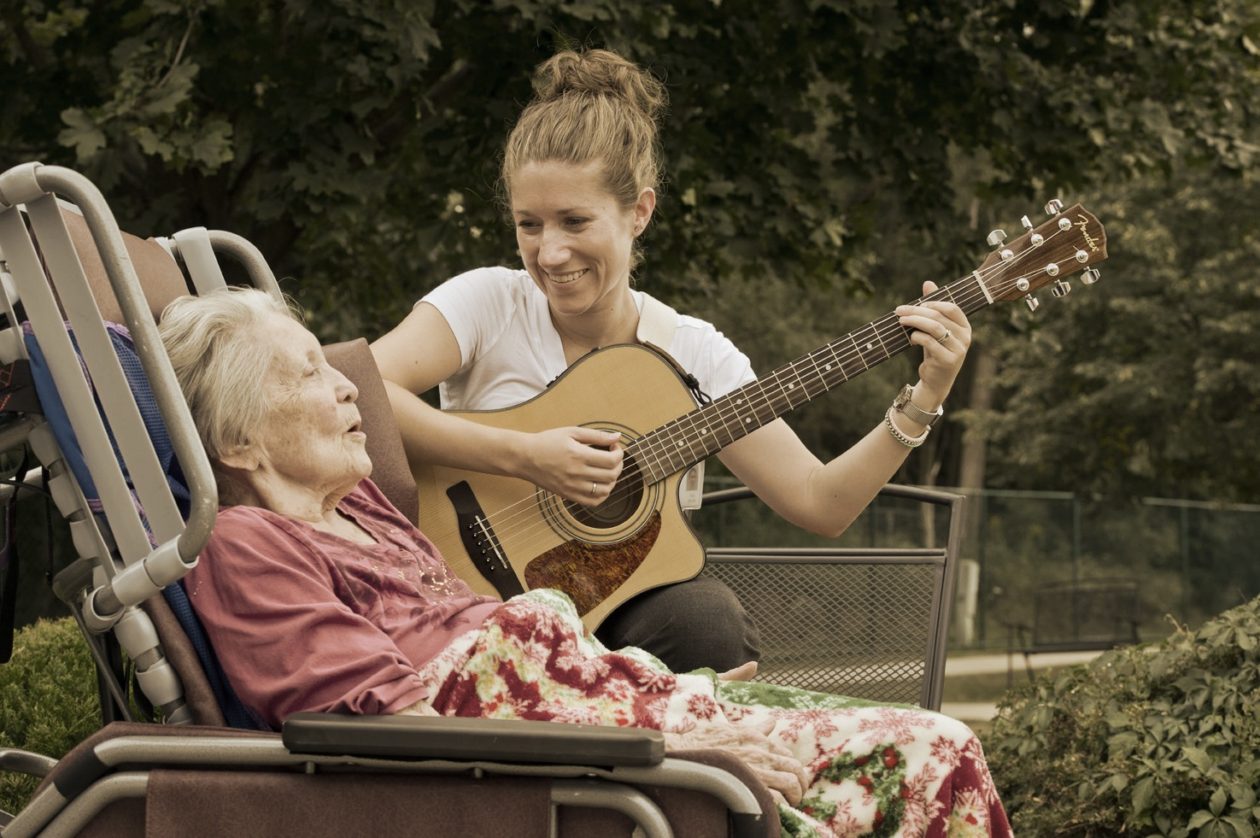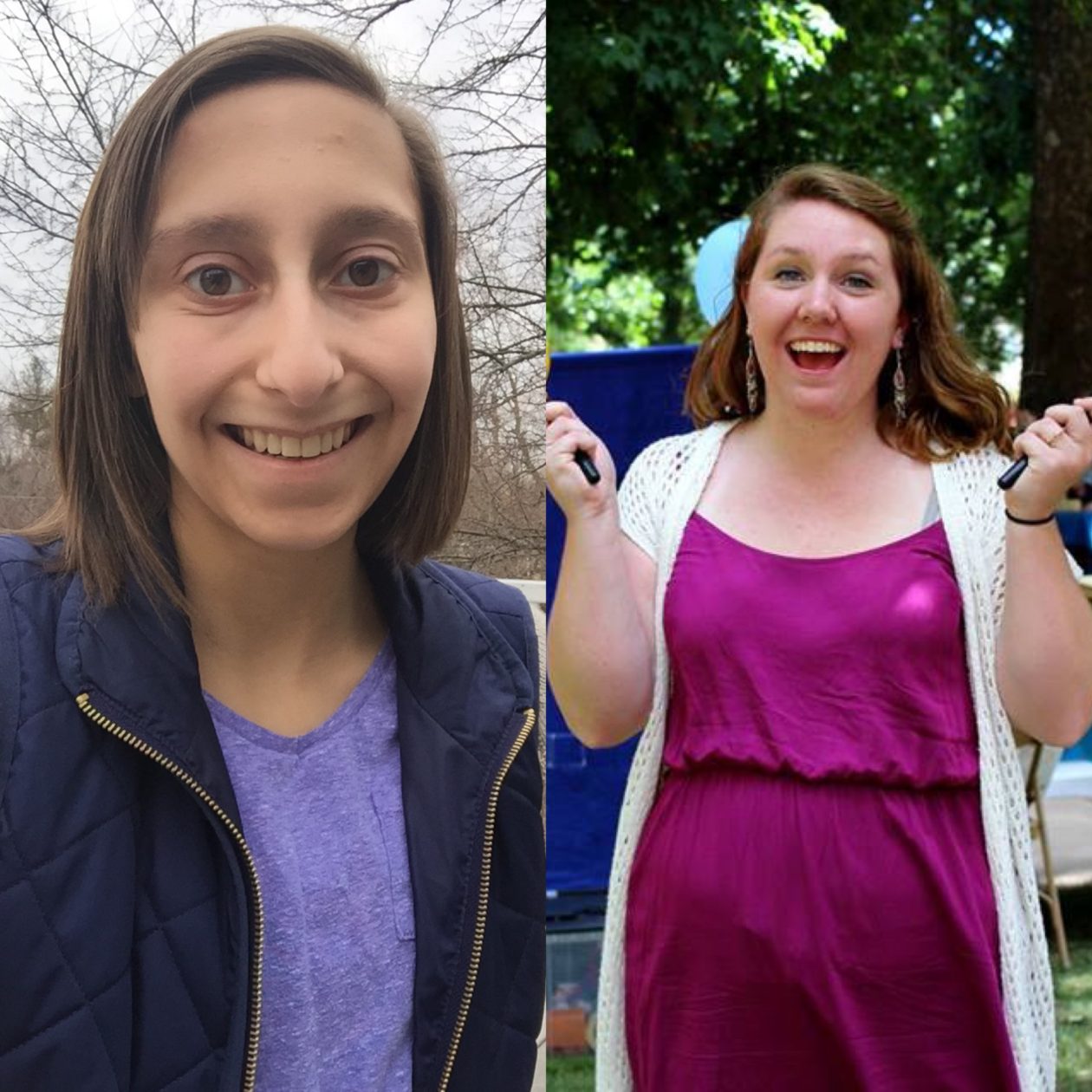Have a job you would like posted in the members only section of the website? Please fill out the form below and the website coordinator will post it within 5-7 days. Please note that the submission will be posted for two months at which point it will be taken down. If the position is still open, please let the website coordinator know and it can be posted again.
Brad Drozdowski, MT-BC
 Where do you work and who are your clients?
Where do you work and who are your clients?
My name is Brad Drozdowski and I’m a music therapist at Institute for Therapy through the Arts in Evanston and with RhythmWORKS in the DuPage area. I see a diverse caseload of groups and individuals all over the greater Chicagoland area. The populations I see the most are Autism, Developmental Disabilities, and stroke patients with aphasia.
What is your favorite part of your job?
My favorite part of my job is simply having the opportunity to make music with so many people and to witness first hand, every day the power music has to make change in their lives.
What inspired you to become a music therapist?
I found out about Music Therapy in high school; I was looking for a career that would combine my interest in psychology with my passion for music. When I discovered that Eastern Michigan University had a great program only 20 minutes from my hometown, I auditioned and enrolled in the program my for my first semester of college and never looked back.
What do you do for self-care?
My self-care typically includes some light meditation, cooking, composing, and reading philosophy on the train.
What’s once piece of advice you have for students or new therapists in the field?
I’m a new therapist myself, so my advice to those just entering the field or to students in their internship is to enjoy those final moments of becoming a music therapist. There really is no limit to what you can accomplish in this field once you cross that threshold, and that shouldn’t be scary. Take your time, take stock of how hard you’ve worked to become board-certified, and take your career into your own hands!
Andrea Owens, MT-BC
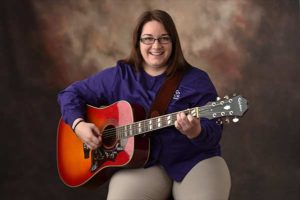 Where do you work and who are your clients?
Where do you work and who are your clients?
I work for Hospice of Kankakee Valley which is a local hospice company which was founded in 1983 in Kankakee, Illinois. We serve about 150 on average hospice patients ranging in age from newborn to well into their 100s! These patients have various diagnosis, but most common are Alzheimer’s, heart disease, COPD and cancer. I also serve some bereavement and lead creative arts grief support groups.
What inspired you to become a music therapist?
I grew up in a very small town, and my high school graduating class was 43 (which was big for my school). I did not know of any music therapists so I knew I loved music, and wanted to have a career in music and Bradley University in Peoria had a music career day when I was a sophomore in high school. That is where I learned about music therapy and chose to become a music therapist.
How have you experienced music to be therapeutic yourself?
I cannot say that I have experienced music to be therapeutic as in the way we treat patients/clients, but I have found music to be very healing for me. It was something I could do on my own, or with others and I could see myself getting better at. I found it as a good hobby, and an enjoyment, it allowed me to clear my mind and focus solely on the music and not the other things in life that demanded my attention.
Who is your role model?
As a hospice music therapist, my role models are Noah Potvin and Russell Hilliard. These men are a breath of knowledge in hospice music therapy. I have only been a hospice music therapist for over a year and still have plenty to learn, and I love attending their continuing education seminars and presentations at conferences.
What are your hobbies, and what is your favorite self-care activity?
Hobbies have been difficult for me! So has self care! I started the program at Hospice of Kankakee Valley in January of 2016, and that has consumed a lot of my time. I grew up in this area, but a lot of the people I knew are gone, so I am back home rebuilding a social life! Honestly, this has been the hardest part of being a new professional, is life outside of work. I have a dog! And he is my joy, I also enjoy walking, reading, crafting and attending wine and paint nights. My favorite self care activity would have to be walking, and that includes my dog and disconnecting from my phone.
Carie Gatz, MM, MT-BC
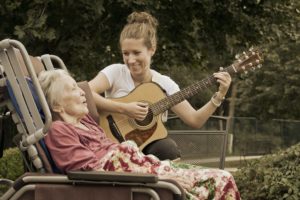 Where do you work and who are your clients?
Where do you work and who are your clients?
I have recently started a new position at Heartland Hospice as the Bereavement Coordinator. I mainly work with the bereaved families of our patients, as well as provide community grief support groups. My day to day doesn’t involve much Music Therapy, yet. I’m hoping to incorporate music into support groups and 1:1 counseling sessions. Another rewarding aspect of my job is serving as chair of the We Honor Veterans Program. This program was developed by the Veterans Administration and the National Hospice and Palliative Care Organization to ensure quality care for veterans at end of life. This program is near and dear to me as I am an Operation Enduring Freedom Air Force Veteran and still serving part-time in the Illinois National Guard.
What inspired you to become a music therapist?
I recall in my senior year of high school debating whether I would go to school for music or for psychology. Little did I know at the time that Music Therapy was a career option! After getting my bachelors in music business from Elmhurst College, I struggled to find my path in life. Luckily, through membership in Sigma Alpha Iota and the support of my Aunt who is a nurse, I discovered Music Therapy. I always felt a calling to help people, and Music Therapy was the perfect fit to combine my love of music and passion to work with people.
How have you experienced music to be therapeutic yourself?
I’ve always turned to music for emotional validation, especially when I’m sad or going through a rough patch in life. I find it so freeing to sing lyrics that speak to what emotions I’m feeling or to the situation I find myself in.
Who is your role model?
I really don’t have a role model, but I’m inspired by so many people in my life. I try to surround myself with positive, hardworking people who have a passion for life.
What are your hobbies?
I enjoy baking, especially cookies and cakes. I participate in 5K races, usually doing about 4 a year. Shopping…does that count as a hobby? My mother, grandmother, and I love to go shopping and find good deals. We traditionally all go out shopping together on Black Friday. And, of course, music! I do maintain playing and performing on my primary instrument, French horn.
What is your favorite self-care activity?
I think my favorite self-care activity is really a technique- learning to say “No.” This is inspired by my career in hospice and the patients I’ve worked with. I’ve learned from them that life is short. I believe in work-life balance, and I try to make a conscious effort to be good to myself and to spend time with friends and family.
ISU Crescendo’s Night of Music Therapy
Join us for a full day of Music Therapy Fun!
Students start the event with an intervention workshop led by your Crescendo Board. During this workshop we will cover working with various populations and using different techniques when creating interventions.
End the night with our guest speaker Dr. Michael Silverman, PhD, MT-BC, author of Music Therapy in Mental Health for Illness Management and Recovery. Evening events will be open to the general public.
Schedule: (All events will take place in Schroeder Hall room 130)
1-3 PM: Intervention Workshop (Students Only)
3-4 PM: Break
4-5 PM: Q&A with Dr. Silverman (Students Only)
5-6:30: Break
7-8:30: General Session (Students and Public)
8:30-9:30: Reception
Michelle Bingheim & Courtney Daniel
This quarter, we are please to spotlight two of our student members in a special Student Spotlight. Michelle Bingheim is president of WIU’s Music Therapy Association, and Courtney Daniel is president of ISU’s Crescendo student music therapy association.

WIU Music Therapy Association
What inspired you to become a music therapist?
Growing up, I was always taught to help others by using your talents. I knew I loved music, and I also knew that I wanted to help people. When I found out about music therapy, I knew it was meant to be! I love that I am able to use the talents that God gave me to help others have the best life possible.
What clients or populations do you want to work with?
My dream job is to work with children in a school setting. Eventually, I would love to teach music therapy at the university level.
Who is your role model?
My biggest role model in life would be my sister because she has been there for me since day one. When it comes to music therapy, my biggest role model would be Dr. Jones; she helps each student and works with each of us to be the best music therapist possible. I have a “music therapy crush” on Dr. Masko because of her knowledge for music therapy research and all the work that she has done in the field relating to research.
What are your hobbies?
My hobbies include playing the trumpet, being involved at my church, volunteering for the Salvation Army, supporting St. Jude Children’s Research Hospital and Easter Seals through Epsilon Sigma Alpha International, and rooting for the St. Louis Cardinals!
What is your favorite self-care activity?
My favorite self-care activity is spending time with family and friends! If I need alone time, I love to binge watch shows on Netflix or go for a walk.

ISU Crescendo Music Therapy Association
What inspired you to become a music therapist?
I never really knew the true definition of music therapy until I transferred to ISU in fall of 2015. I first heard of music therapy when I was visiting Illinois State my sophomore year of high school. Since then, the thought of music therapy never left my mind. I became most inspired when I actually started practicing the profession.
What clients or populations do you want to work with?
I am currently applying for internships in mainly hospice facilities, but would also love to learn about and work with babies in the NICU. How have you found music to be therapeutic yourself? My comfort is found through the lyrics of songs. Whenever I am at a loss for the right words to say, I turn to music. I find myself stressing out about certain things in life, but I always come back to the music which is really empowering.
Who is your role model?
Together, I would say my parents are my role models. They have raised me to believe that I am capable of anything. They care, provide, support, and believe in me. I would not be who I am today without them, and I am so thankful for them.
What are your hobbies?
Of course I love singing and playing piano and guitar. At ISU I am involved in Concert Choir and Madrigals, as well as the president of our student organization, Crescendo: Music Therapy. Outside of school I love to paint on canvas and hang my work up on the wall. I am also a huge fan of Pinterest projects, watching dramatic Netflix series, and enjoying time outside.
What is your favorite self-care activity?
Sleep. I almost always try to get eight hours of sleep every weeknight. That has been my best self-care activity. I am healthy, but I still work hard and get good grades.
2017 IAMT Student Retreat
Presented By:
Professor Kitty Karn
Anna Matlack, MT-BC
Lori Schwerer, CTRS
Elisabeth Tinnes, MT-BC
Date: March 4, 2017
Location:
Western Illinois University
1 University Circle
Macomb, IL 61455
Room: Please meet in the Browne Hall Lobby
Summary:
Start the day with self-care, yoga and movement.
Please dress comfortably and bring a yoga mat or towel.
“I provide music therapy under the Indiana Medicaid waiver.” Now, what does that exactly mean? This presentation will describe what opportunities the Indiana Medicaid waiver provides for individuals with ID and DD. What is the Medicaid waiver and what it means for future music therapists? What population, types of goals, and what a typical a day would look like for a music therapist. This presentation will also describe recreational therapy and how it can provide a holistic approach when paired with music therapy.
Internship, Business Ownership, and Beyond: Curious about internship? Has private practice crossed your mind? Elisabeth Tinnes, MT-BC, will offer practical information on internship that includes mock interviews and answers to the question “what is a clinical training director really looking for and how can I prepare?”
Beyond internship, Elisabeth will outline the steps to creating a music therapy business, generating clients, employees vs sub contractors, maintaining the work you have and expanding your business.
Additional information and details can be found in this document.
Please register by February 28th. Non-IAMT members will need to pay $15 upon arrival to the retreat.
Please contact Mia Meacher with any questions at student_coordinator@musictherapyillinois.org
No Fields Found.

